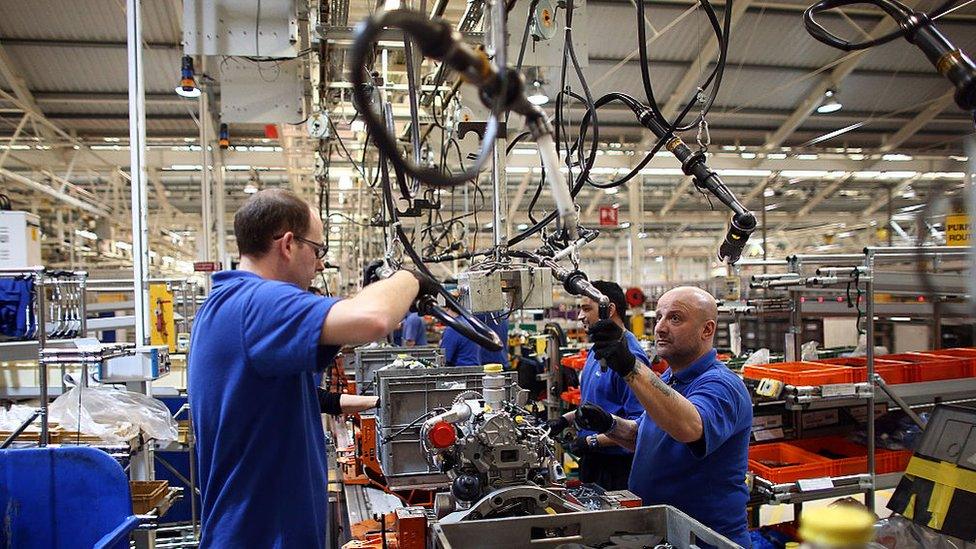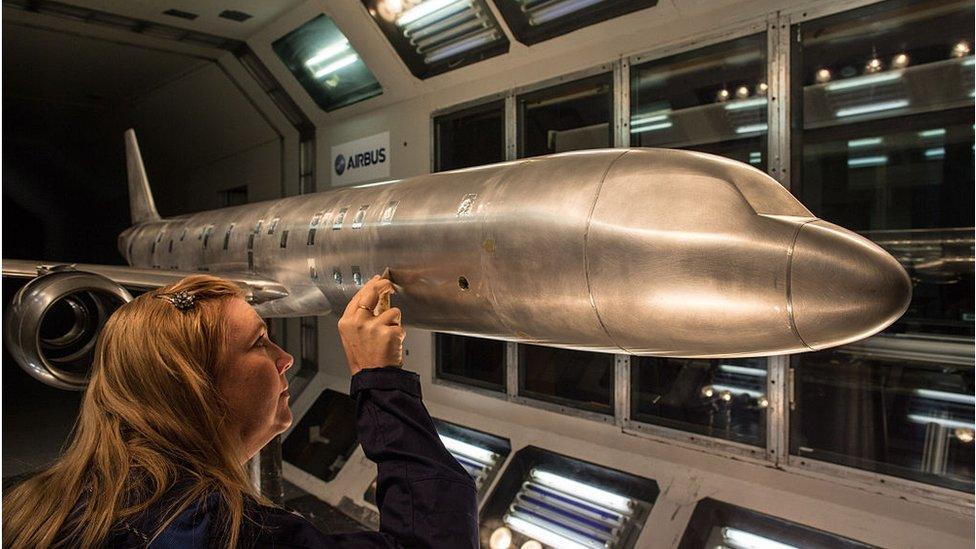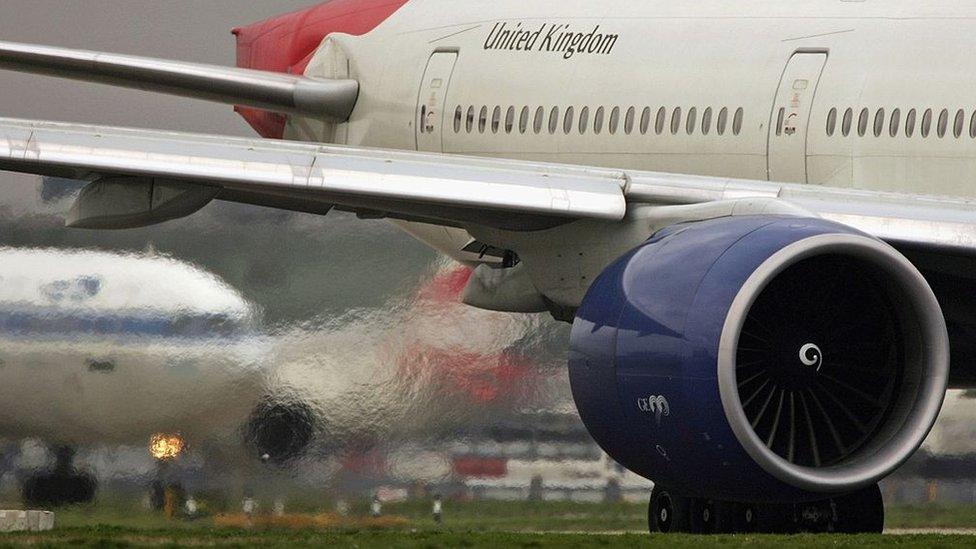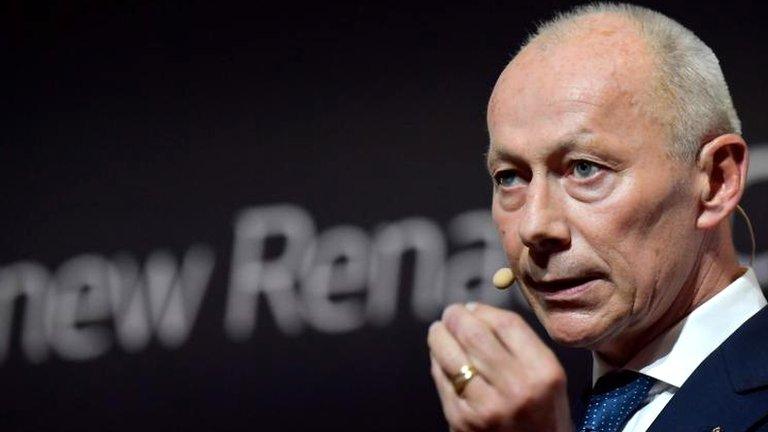Government faces industry backlash on Brexit plans
- Published
- comments

The government is facing an unprecedented backlash from five key industries over Boris Johnson's plans for post-Brexit trading arrangements.
The aerospace, automotive, chemicals, food and drink and pharmaceutical sectors warn they could pose "serious risk to manufacturing competitiveness".
Collectively, the sectors employ 1.1 million people, contributing £98bn to the UK economy each year.
The group has sent a letter to the government highlighting its concerns.
The BBC has seen extracts of the letter, which was sent this week to Brexit Secretary Steve Barclay and the Cabinet Office minister, Michael Gove.
While such bodies have in the past made clear their concern at the prospect of a no-deal Brexit, this is the first time they have directly expressed to government their joint concern about a possible Brexit deal, after mostly supporting Theresa May's negotiated proposal.
The letter outlines their growing concern that Boris Johnson's Brexit negotiators have dropped existing commitments to maintain regulatory alignment in relevant sectors. The manufacturers' key concern is that they may no longer participate in specific EU regulatory institutions after any Brexit deal.
The group is asking for a "reassurance" that industry interests are still being prioritised by EU negotiators, and the letter warns of the "damage which would be done by the current approach on regulatory divergence".
It says: "Pan-European regulatory alignment has been a success in our industries, supporting continued creation and retention of highly skilled manufacturing jobs in the UK.
"It is important this regulatory alignment should continue after Brexit as a critical element of the UK's future relationship with the EU".
A government spokesperson said the UK was "seeking a best in class" free trade agreement drawing on existing EU deals.
"We have been clear that we are committed to maintaining high standards after we leave the EU," the spokesperson said.
Divergence
However the public and private noises emerging from London and Brussels is that the government has markedly changed its plan for a future relationship. They say the new proposal has low alignment with EU regulations, and does not have level playing field conditions attached on the environmental, social and labour standards, as proposed in Theresa May's deal.
After failing to get reassurances in recent weeks, particularly on the membership of key EU agencies, various sectors joined forces to warn the government directly.
The letter says that the serious risk to manufacturing "will result in huge new costs and disruption to UK firms".
"It would be disruptive to our complex international supply chains and has the potential to risk consumer and food safety, and confidence, access to overseas markets for UK exporters and vital future investment in innovation in this country."
This letter sees the Society of Motor Manufacturers and Traders, the Chemical Industries Association, the Food and Drink Federation, and the Association of the British Pharmaceutical Industry join an existing call from the aerospace industry, reported by the BBC earlier on Friday.

The aerospace industry body the ADS wrote to the government asking for "reassurance" that there would be "continued membership of the European Aviation Safety Agency (EASA) and alignment with EU chemicals regulations" which "are vital for our sector".
Repeated attempts to get clarity on this issue have not reassured the aerospace and other industries on this topic.
Other industries have asked for similar reassurances, only to be told in recent weeks that the government is seeking a "best in class" free trade agreement, where the UK would set its own regulatory standards.
Trade deals
The government has acknowledged that it wants to take the "level playing field" arrangements out of the political declaration that promised alignment on environmental, social, labour and some tax measures.
These were also seen as crucial to ongoing industrial regulatory co-operation, and preventing the introduction of many types of checks on trade.
But the government fears such measures agreed by Theresa May will restrict the ability of a post-Brexit government to strike meaningful trade deals with other countries such as the US.
A source close to the talks acknowledged to the BBC that among changes being negotiated in the political declaration, these references to EU agencies could get scrapped.
Even as most of the negotiating attention remains on Northern Ireland, the change in approach from the Johnson government suggest a significantly different, more diverged end-point for Brexit for England, Scotland and Wales, than envisaged under Theresa May.
A number of Labour MPs who say they want to support a deal have already expressed a desire for a deal with less scope for regulatory divergence.
- Published11 October 2019

- Published11 October 2019

